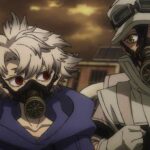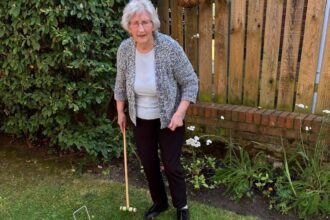I couldn’t respond to anything the admitting physician asked. I felt frozen, like I was in a profound, shadowy cavern. His voice reached me; I understood, but I couldn’t reply. Then he told my parents he was going to admit me, but the only bed available was in the locked ward. They kept patients with delusions and other severe diagnoses in that ward. I was seriously depressed.
What triggered my depression?
I remember receiving a letter after two weeks of not hearing from Frank, my boyfriend. He said he wanted to date other women. I thought we were considering marriage. I had had too many losses already – my first marriage; Richard, the man I thought I fell in love with after that marriage; the opportunity to attend university after high school; and now Frank.
Calling for help
Walking to my bedroom, I felt numb. I had to get to the phone. I called my mother in Bridgeville, a 35-minute drive from my apartment in East Liberty. In the letter, Frank explained his wish to break off our relationship. I stood in my living room, the letter in hand. My arms and legs felt heavy, like they were full of sand. I couldn’t move. Finally, I recovered enough to lay the open letter down on a table and walk to my bedroom and the phone. I was numb. I could barely see anything.
As if I were a zombie, I dialled my mother’s number. “You need to come get me. I’m coming home. Bring Tim to drive my car,” I said when she answered. Then I lay down on my bed without turning back the spread. I didn’t cry. I just stared at the ceiling. I don’t know how long it took for Mom and my brother Tim to reach me, but she came into my bedroom to get me.
Apparently, she had read Frank’s letter, which was lying open on the table. I was glad, because I couldn’t speak. I don’t remember the ride back to Bridgeville. And my only memory was from the following day when I was lying on a beach lounge chair on my parents’ porch covered with a blanket. It was sunny with a light breeze.
I must have asked Mom to call my pastor, Father Wilson, because he showed up at my parents’ house while I was reclining on the porch. He spoke to me, and I started sobbing. I couldn’t tell him what happened, but my mother told him about the letter.
Father Wilson must have talked to my mother about what needed to be done; he thought I was so depressed I needed to be hospitalized. He scheduled an evaluation for me at Pittsburgh’s St. Francis Hospital. The next day, I was no longer sobbing. I felt like a stone. I couldn’t talk. I don’t remember the drive to the hospital or getting checked in. I remember the admitting doctor asking me questions, but I couldn’t answer. He admitted me but the only bed they had was in a locked ward for seriously ill patients.
Admitted
The next thing I remember was being in a room with a single bed and a stiff chair next to a small window. It had bars on the outside and I could see through it but all I could see was a brick wall that was at an angle. The wall was lit by the sun, but I couldn’t see anything but the red brick wall.
In the hospital
They gave me medication. I don’t know what it was, but I took it. I just did as I was told. A few days later, I was sitting in the chair by the window when three nurses poked their heads in the doorway. They didn’t come into the room, just peeked into the room. Two of the nurses were kneeling in the doorway as they peered in, and the third was bending over them, trying to get a good look. It was as if they were avoiding actually coming into the room or wanted to claim they had not done so. Perhaps nurses were told to leave me alone, but they wanted to find out my story.
Addressing me, they wanted to know what brought me in. I answered one question after another until they got out the whole story. After they were satisfied and left, I felt completely drained, as if they had picked my bones clean.
I started crying again. So, I lay down on the bed and fell asleep. Days passed to new days, but I remember nothing. At some point, I remember being called to dinner. I didn’t know where I was, but I remember being seated at a table alone. I was bent over sobbing. On the plate in front of me at eye level, I saw a piece of chicken that looked so big it seemed to take up the whole plate. I couldn’t eat. All I could do was cry. I had had too many losses—my first marriage, my church, Richard, and now Frank.
In the evening, they gave me more medication. I slept. When I woke up the next morning, I started crying again. They gave me more medication, and I went back to sleep. I don’t know how long this went on.
My focus
Somehow, weeks later, I got the book Broken Wings by Kahlil Gibran. In the book, the author explores a variety of subjects, including love, the plight of women, the hypocrisy of self-serving religious heads, false values on which human societies are built, and true prayer and sacrifice. The core message is that love is the only freedom in the world because it so elevates the spirit that the laws of humanity do not alter its course. I read and reread it, taking comfort in its message, and I underlined many passages.
After a long while, my crying stopped, but I was numb. Another patient named Sophia came to my room to offer her support. She said she heard I would have dinner with other patients in a large dining room. Sophia warned me, “There are a lot of priests at dinner. Each one thinks he is Christ.” That evening, Sophie came with me to the dining room. In the large room were long tables, each seating six. Although Sophia had warned me, I felt afraid when each man stood up and declared that he was Jesus. I could understand how they had become indoctrinated with Catholic dogma and preaching, so that this led to their confusion. Years later, I learned they were each caught up in a religious delusion.
I knew I wanted to be out of that hospital. But each morning and evening, the nurses administered medication to me that made me sleepy. I don’t know how long I was in the hospital. I think it was several weeks.
Seeing the doctor again
Finally, the doctor wanted to see me. He asked how I was doing. I lied and said I was much better, although I was still quite fragile still. “Do you know why you are here?” he asked, meaning the hospital.
“Yes. I got depressed from the breakup of a relationship.”
“Do you think you will be okay if I release you.”
“Yes,” I said, hoping he would believe me.
“Where will you go?”
“I’m going to live with my parents for a while. Then I want to go back to work and to my apartment.”
The doctor said I could go home the next day, and he changed my medication. But I did not receive any medication to take after leaving the hospital. My parents picked me up the next day. It was so good to see the sun shining on the trees.
I knew I had to be brave and cope with stress better. I sent for a book on stress management, which I read in the evenings at home. My parents were playing cards with my mother’s cousin Irma and her husband.
As I was sitting in the living room reading my book on stress management, I noticed my dad glancing over at me several times when he was playing cards. I knew he was concerned about me. I still wasn’t okay.
A new stressor
One evening, mom and dad were in the living room bickering as usual. It felt like I was being tortured. Sitting at the kitchen table, I screamed, “Stop it. Stop it.” And I screamed again as loud as I could. I got up from the kitchen table and bolted out the kitchen door. After sprinting down the driveway, I took a right turn onto the sidewalk. I reduced my pace to a walk. I needed to clear my head and calm my nerves.
When I got back to the house, they had gone to separate rooms. I went straight to bed. Images of my return to work and to my night classes at the University of Pittsburgh filled my dreams. I had to recover.
A week later, after thanking my family for their care, I got in my car to drive back to East Liberty. Familiar landmarks greeted me on my drive home. Reaching my apartment, I checked my mailbox. Just grocery store flyers stuffed it. Entering my apartment, I felt assured it looked the same. Two white chairs flanked the familiar green sofa. On the table was the letter from Frank, still open. I took it and all the grocery store flyers and put them in the trash. I had to recover.
Weeks passed, and my wound slowly began to heal. In time, I began dating again. And I had a new passion. I began night class at the University of Pittsburgh. My focus was now my education. Little did I know then that graduate school, and a new future were ahead of me. My hope for an education and a new career seemed possible. Could I realise that long-held dream?
***
Adapted from “Realizing a Dream: Finding Passion in a Career“
Joyce D. Nash, PhD, is a retired clinical psychologist and award-winning author of ten books, including Maximize Your Body Potential. She holds doctorates in communication and clinical psychology from Stanford University and now lives in Eagle, Idaho.








